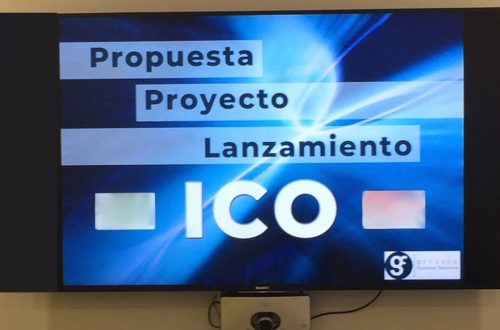Cuestión de tiempo
Las Nuevas Tecnologías han creado nuevas maneras de interconectarnos y de enfrentarnos a retos.
Esta revolución retroalimenta la ambición humana obsesionada en conseguir la singularidad tecnológica y, desafiando a lo divino, en alcanzar la eternidad del ser.
Nuevos Delitos
Sin embargo, las Nuevas Tecnologías también han pasado a ser los medios que permiten un mayor alcance delictivo. Han aparecido Nuevos Delitos que aventajan mucho más que antes al Derecho. Se cometen prácticas que aprovechan la velocidad inferior de respuesta del Derecho y la inexistencia de legislación. Nuevos Delitos que recorren el planeta sin dejar rastro, navegan por espacios ocultos, comercializan con criptomonedas, acceden a infraestructuras y pueden apagar la luz de la tierra así como dejarla permanentemente encendida. No tienen límites, si los encuentran, la tecnología les mostrará nuevos caminos. Los nuevos delincuentes pasan de puntillas a nuestro lado, se hospedan en nuestros dispositivos, se apoderan de nuestra privacidad, influyen en nuestras decisiones de compra y procesan nuestra geolocalización.
Se requiere un Nuevo Derecho
La Nueva Sociedad requiere la presencia de un Nuevo Derecho que haga frente a los Nuevos Delitos. Que crezca, se modifique y evolucione a la velocidad en la que se desarrollan los avances tecnológicos. Que vele por garantizar una formación de prevención básica y obligue a las otras partes a asegurar un conocimiento técnico mínimo a sus clientes.
Se manifiestan deficiencias en nuestro Código Penal y en la Ley de Enjuiciamiento Criminal, ambos recientemente reformados. Falta de ordenación sistemática de los delitos informáticos, un código disperso, ausencia de términos como vulnerabilidad, deficiente asesoramiento técnico dando como resultado ambigüedades y faltas de garantías procesales.
La Globalización
Afrontar este reto sólo podrá ser abordado desde un punto de vista global. La globalización también requiere tener presencia en el mundo jurídico. No se debe sólo pensar en objetivos económicos y dejar aparcada la necesidad de un Derecho Internacional Global que regule todas las actividades que desde la Nuevas Tecnologías posibilitan el intercambio entre cualquier punto del planeta.
Si “Todo está conectado”, requerimos un Nuevo Derecho también “interconectado”
Einstein: When will you send us the formula of Law for the New Society?
«Question of time»
New Technologies have created new ways to «interconnect» and face challenges.
This revolution feeds the human ambition obsessed in achieving the «technological singularity» and, challenging the divine, in reaching «the eternity of being».
New Crimes
However, these technologies have also become the means that allow a greater criminal reach. New Crimes have appeared that surpasses Law much more than before. Practices that take advantage of the lower speed of response of the Law and the lack of legislation. New Crimes that travel the planet without a trace, navigate through hidden spaces, market with «cryptocurrencies», access infrastructures and can turn off the light of the earth as well as leave it permanently on. They have no limits, if they do find them, technology will show them new ways. The new criminals tiptoe by our side, stay in our devices, take over our «privacy», influence our purchasing decisions and process our «geolocation».
New Law is required
The New Society requires the presence of a New Law that faces the New Crimes. That it grows, changes and evolves at the speed at which technological advances are developed. Ensure that basic prevention training is guaranteed and force the other parties to ensure minimum technical knowledge for their clients.
It reveals shortcomings in our Criminal Code and in the Law of Criminal Procedure, both recently reformed. Lack of systematic ordering of «computer crimes», a dispersed code, absence of terms such as «vulnerability», poor technical advice resulting in ambiguities and lack of procedural guarantees.
Globalisation
Facing this challenge can only be approached from a global point of view. Globalisation also requires having a presence in the legal world. One should not only think about economic objectives and leave behind the need for a Global International Law that regulates all the activities that from the New Technologies make possible the exchange between any point of the planet.
If «Everything is connected», we require a new Law that is also «interconnected».
Photo from Pixabay




